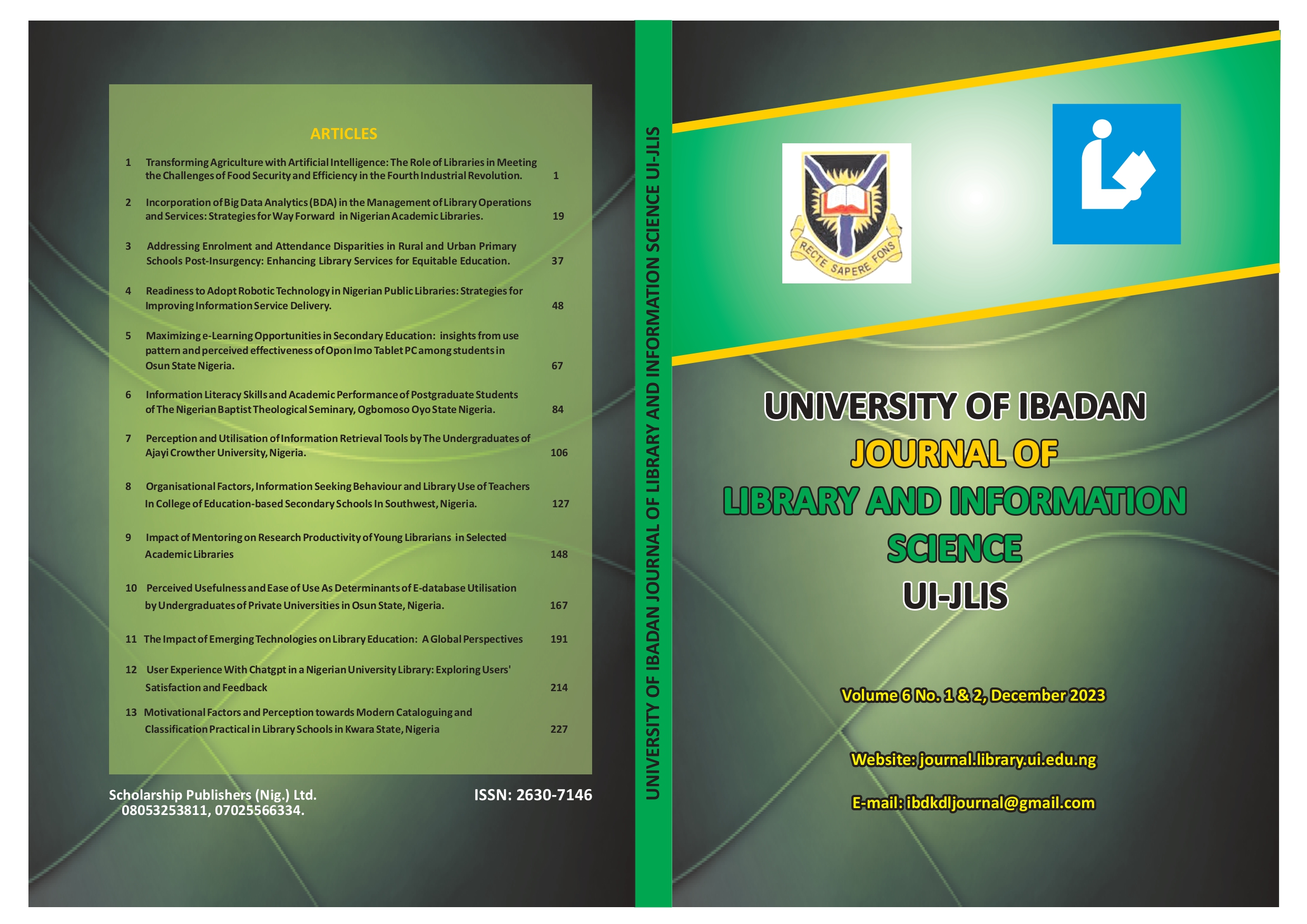Transforming Agriculture with Artificial Intelligence: The Role of Libraries in Meeting the Challenges of Food Security and Efficiency in the Fourth Industrial Revolution
Keywords:
Agriculture, Artificial Intelligence, Food Security, Libraries, Fourth Industrial RevolutionAbstract
This study investigates the impact of Artificial Intelligence (AI) on agriculture to address food security and efficiency in the Fourth Industrial Revolution, as well as the role of libraries in this transformation. The study adopted a descriptive qualitative approach using in-depth interviews. The study involved 30 experts in the intersection of agriculture and AI, with the data collection through in-depth interviews and thematic analysis. The study suggests that AI can significantly benefit agriculture by increasing efficiency, yield, and sustainability. However, there are also concerns about AI adoption in agriculture, such as job loss, data privacy, and ethical implications. The study highlights the important roles that libraries can play in supporting AI adoption in agriculture by providing access to critical data sets and resources, acting as a hub for collaboration and knowledge-sharing and connecting farmers with AI experts and technology providers. The study concludes by suggesting several strategies for libraries to improve their services for agricultural researchers and practitioners working with AI technologies. These suggestions include collaborating with AI experts, developing tailored resources, providing personalized services, and offering training and workshops on AI technology. Finally, policymakers can take several actions to promote the responsible and sustainable adoption of AI in agriculture by establishing regulatory frameworks and ethical guidelines, investing in AI research and development, and supporting the development of AI-based agricultural systems.

